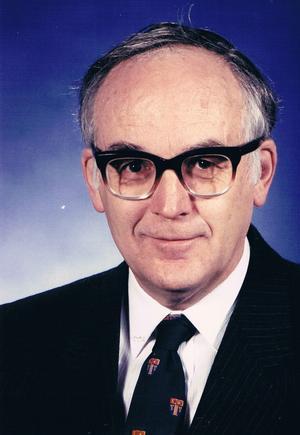Nicholas Barton
28th May 1935 – 11th October 2023

Obituary by Tim Davis, Neil Barton and Joseph Dias
Nicholas Baron JTO obituary
Nicholas Barton, retired Consultant Orthopaedic and Hand Surgeon at the Queens Medical Centre and Harlow Wood Hospital, Nottingham passed away on October 11th, 2023. He was a gifted, questioning surgeon and teacher who served as Chair of the Education Committee of the British Orthopaedic Association and Speciality Advisory Committee (SAC) for Trauma and Orthopaedics (1994-5). He was Honorary Secretary (1983-5) and President (1989) of the British Society for Surgery of the Hand (BSSH) and Editor of the Journal of Hand Surgery, British Volume (1987-1991). In 2007 he was made a Pioneer in Hand Surgery by the International Society for Surgery of the Hand (IFSSH).
Nicholas was born in 1935 in London. His father was a Shakespearean actor. His mother was a dancer from Glasgow. During the war his father joined the RAF and was stationed at a bomber station in Lincolnshire where he developed a life-long interest in Lancaster bombers and steam trains.
After the war he attended Westminster school where he developed his love for cricket. Many years later, in 1989), when President of the BSSH, he hosted the Society’s dinner at his school choosing a menu that reflected school fare right down to mushy peas.
Nicholas studied medicine at Cambridge and the Middlesex Hospital, qualifying in 1959. His Orthopaedic training was completed at the Robert Jones and Agnes Hunt Orthopaedic Hospital in Oswestry, and the Rancho Los Amigos Hospital in Los Angeles.
Nicholas developed his main medical interest, Hand Surgery, after his appointment as consultant in Nottingham in 1971. He became one of the first specialist Hand Surgeons in the United Kingdom and used his diplomatic skills to create one of the first integrated Plastic and Orthopaedic Hand surgery services, with combined elective hand clinics, a shared on-call hand rota and specialised hand fracture clinics. Throughout his career he researched the treatment of scaphoid fractures, on which he published many articles and delivered his Hunterian Lecture to the BOA annual meeting in Birmingham (2001).
One of Nicholas’ great assets was his curiosity and capacity to challenge dogma by reading widely and performing careful research studies on many upper limb conditions. The first sentence of his article “Twenty Questions about Scaphoid Fractures” (1992) demonstrates his enquiring mind: “When I was appointed a consultant in 1971, I had no doubt about fractures of the scaphoid: I had been taught all I needed to know during my training – or so I thought”. He then describes the numerous, entirely valid, uncertainties about the treatment of these injuries. This article became, and remains, essential reading for any young surgeon planning to research injuries to this bone, and it has guided much research, though many of the uncertainties he identified remain unanswered.
Nicholas was an active teacher of medical students and trainee orthopaedic surgeons. He was an excellent mentor of junior colleagues, and had the knack of guiding their management of patients by asking questions, rather than telling them what to do, so that they thought they had worked it out for themselves. Internationally, he gave invited lectures to numerous hand societies, and his many peer-reviewed articles and book chapters were written in clear precise English which made them easy to read and understand. He was the single-handed editor of the Journal of Hand Surgery for five years, during which the Journal thrived thanks to his careful editing.
Nicholas’ curiosity was not confined to surgery conundrums. He was interested in the history of medicine, writing articles on Joseph Swan (1791 -1874: pioneer of research on peripheral nerves) and Dr John Hall (1575-1635) a physician in Stratford-upon Avon who may have had William Shakespeare on his list. His interest in Lord Byron led to an invitation from the Greek Hand Society to speak on his life and involvement in the Greek War of Independence from the Ottoman Empire. When a student, he worked on a barge on the River Thames in London, and became interested in its tributaries. This led him to write the book “The Lost Rivers of London”. London property developers consequently sought his advice on where to build, and where not to build, to which he would reply that he was a surgeon and unable to advise.
When attending conferences abroad, Nicholas always set aside a half day to explore beyond the conference centre and learn about the hosting city and its surrounds. He had a wide knowledge base and was always excellent and knowledgeable company.
When a young doctor in London he met Margaret when she was looking for a speaker for a Christian Union meeting. She described him later as “a walking encyclopaedia, with boundless curiosity, who reads constantly”. They were married in 1960 and were inseparable, Margaret accompanying him on his many conference trips. On retirement, they moved to Gloucestershire where he took great pleasure in living in a building that is listed in Nikolaus Pevsner’s “Buildings of England” – and which was large enough to house the thousands of books he had collected. Nicholas leaves Margaret, their five children, 13 grandchildren and three great-grandchildren. He will be fondly remembered, and missed, by many surgeons throughout the world. He will have left his mark on those who worked with, or trained under, him.
